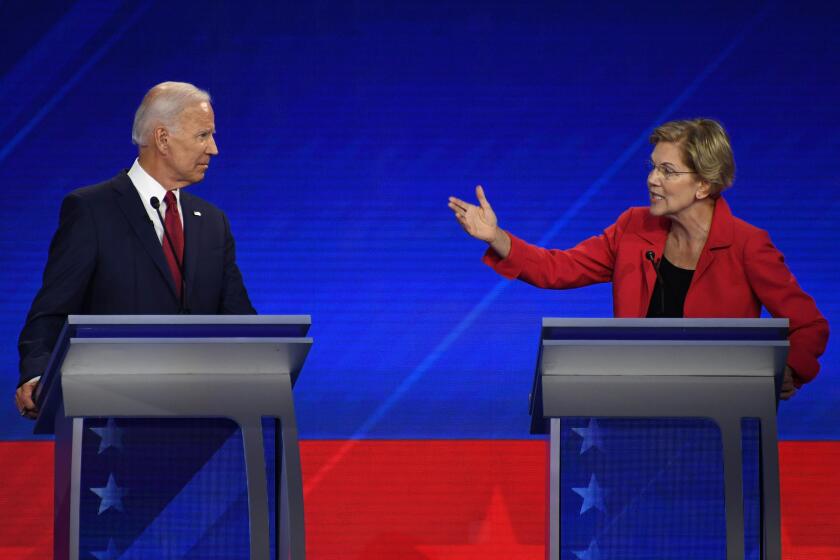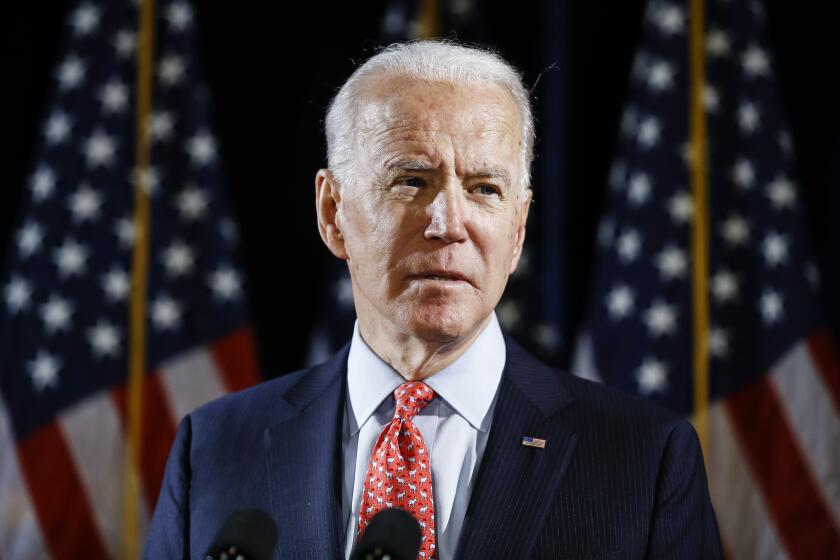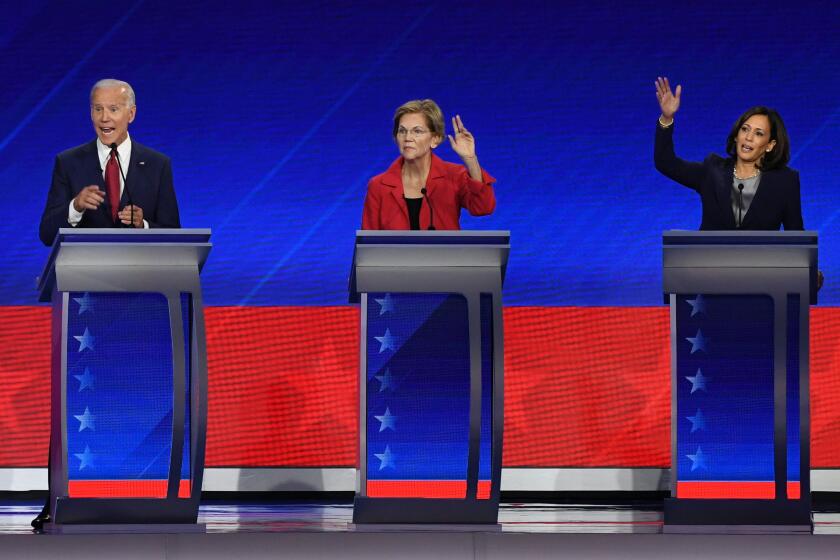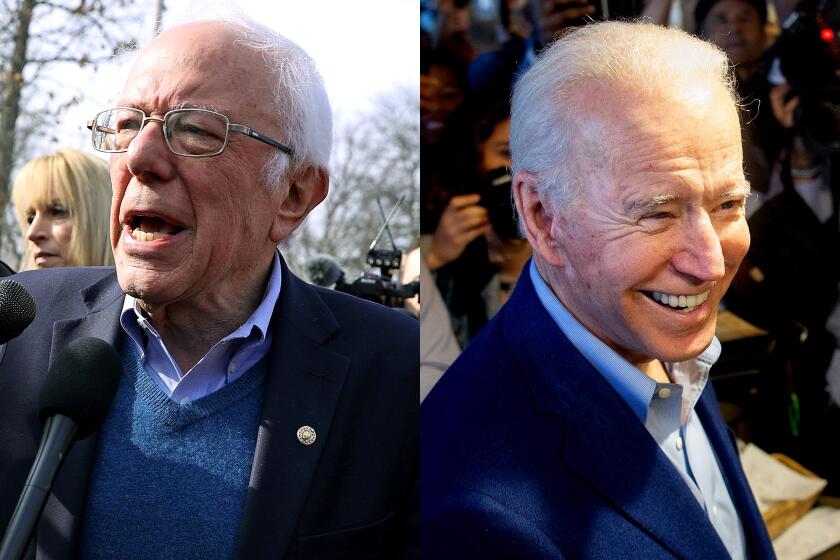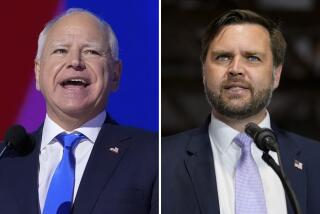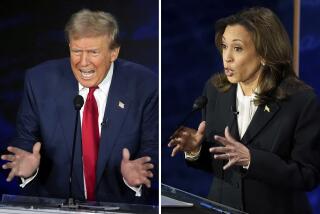How to watch the October Democratic debate
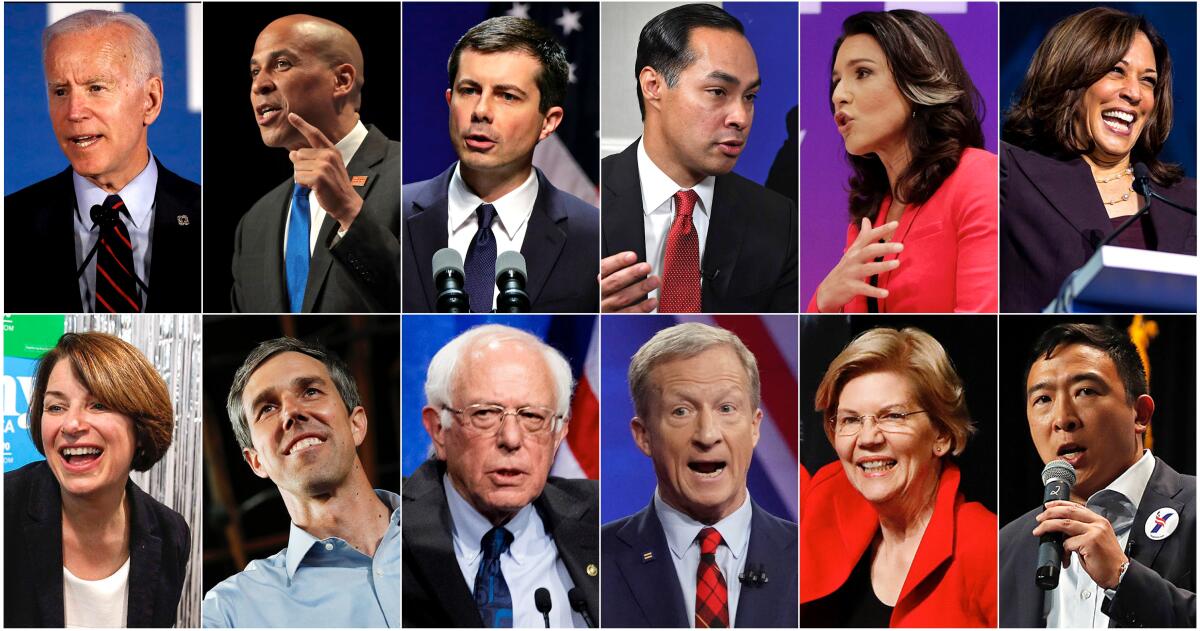
- Share via
Have you ever wanted to see 12 politicians on a debate stage, at the same time, on the same night, fighting for the same job, clobbering each other to claim tiny morsels of preciously limited speaking time? No? Well, too bad.
On Tuesday night, the top dozen Democratic candidates are set to appear at the party’s fourth 2020 primary debate, set at Otterbein University in Westerville, Ohio, starting at 5 p.m. Pacific. The debate, co-hosted by CNN and the New York Times, will be broadcast on CNN and streamed online at cnn.com and nytimes.com, as well as on the outlets’ apps.
The candidates are former Vice President Joe Biden; Massachusetts Sen. Elizabeth Warren; Vermont Sen. Bernie Sanders; California Sen. Kamala Harris; Mayor Pete Buttigieg of South Bend, Ind., ...
Still going, stay with us ...
New Jersey Sen. Cory Booker, former Rep. Beto O’Rourke of Texas; former Housing Secretary Julián Castro; Rep. Tulsi Gabbard of Hawaii; Minnesota Sen. Amy Klobuchar ... and (deep breath) businessmen Andrew Yang and Tom Steyer.
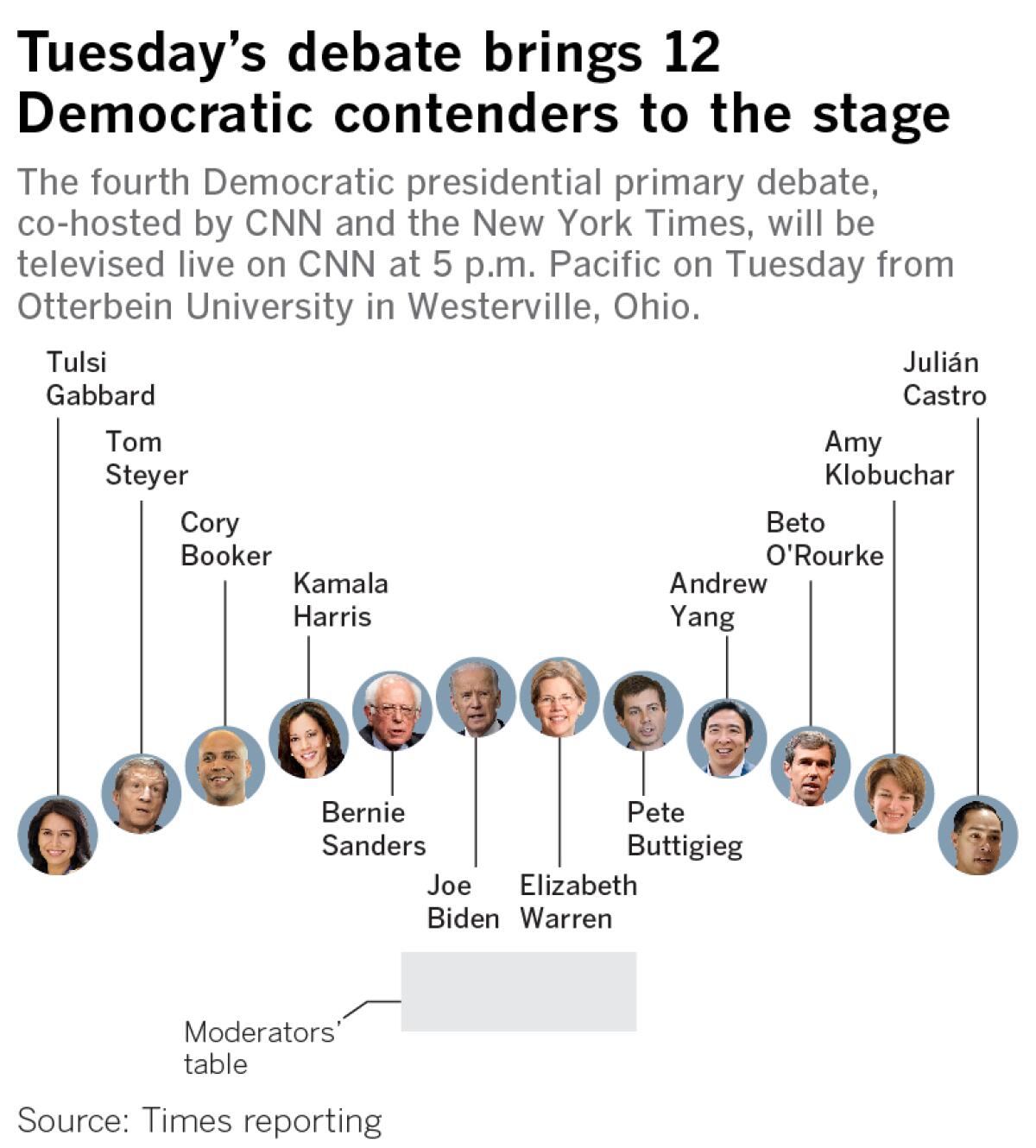
The number of candidates on stage appears to be the largest ever in a primary debate, which is likely to irritate and bewilder many undecided Democratic voters who have been hoping the massive field might narrow to a more manageable number. Especially since last month’s debate featured only — “only” — 10 candidates.
Wait, this debate is bigger? Why?
The Democratic National Committee didn’t limit the number of candidates who could qualify for the party’s sanctioned television debates — they just set the polling and donor requirements that a candidate would need to meet. And this time, more candidates qualified than did last month. The DNC also wanted to keep things to one night rather than two, which is how they all ended up on the same stage.
Will the Trump impeachment inquiry dominate the Democratic debate in Ohio? Will Joe Biden face Ukraine questions? Which candidates will go on the attack?
What were the thresholds last time, and what are they now?
They’re basically the same. For the September debate, the candidates needed to receive donations from at least 130,000 unique donors, including at least 400 in each of 20 states. They also needed to get at least 2% support in four high-quality polls of voters either across the nation or in the four early-primary states of Iowa, New Hampshire, South Carolina and Nevada.
The only thing that changed this time around is that instead of needing to qualify in four polls between June 28 and Aug. 28, the qualification window widened to polls taken between June 28 and Oct. 1.
In other words, the bar didn’t get set any higher, but the candidates got more time and more chances to jump over it.
Exactly. It’s like if you got to take a driver’s test over and over again until you finally figure out how to parallel park.
The field is down to Joe Biden now that Bernie Sanders ended his presidential campaign. Here is the Democrat heading for a battle with President Trump.
Who’s new?
Gabbard and Steyer. The other 10 candidates are the same bunch who were there in September.
What do I need to know about Gabbard?
Gabbard qualified to return to the debate stage after missing the last round, but last week she threatened to boycott, calling the debates “commercialized reality television meant to entertain, rather than to inform or enlighten.”
In her most recent appearance, in the second round in August, Gabbard made a bit of a splash with sharp attacks on Harris’ record as a prosecutor and attorney general in California, telling the senator “the people who suffered under your reign as prosecutor — you owe them an apology.”
It got some viewers’ attention, but that didn’t immediately translate into the gains Gabbard needed to proceed to the third round.
What do I need to know about Steyer?
Steyer is the truly new face on the Democratic stage, in more ways than one. The billionaire liberal activist had been leading a movement to impeach President Trump before declaring he was entering the race in July, long after the other candidates on the stage had gotten their starts.
Steyer also has the lowest name recognition of the major Democratic candidates, according to Morning Consult data — even lower than several who did not qualify for the stage.
But it turns out it’s useful to be a billionaire with a record of activism. Steyer pledged to spend $100 million of his own money on his campaign, and he began by shelling out cash to acquire voter and activist data collected by the advocacy groups he started. The strategy seems to be, pardon the pun, paying off.
Who’s missing?
Self-help author (and occasional mystically leavening stage presence) Marianne Williamson didn’t make the cut, but she’s still out there campaigning. So are Sen. Michael Bennet of Colorado, Rep. Tim Ryan of Ohio, former Rep. John Delaney of Maryland, Montana Gov. Steve Bullock, and former Rep. Joe Sestak of Pennsylvania, who appears to be campaigning just in New Hampshire this month.
Joe Biden and Elizabeth Warren clash on stage for the first time at the Democratic debate in Houston.
Who’s moderating?
CNN anchors Erin Burnett and Anderson Cooper and New York Times national editor Marc Lacey.
How are they going to handle this many candidates at one time?
Some wooden fencing, maybe? Those eye blinders that racehorses wear so they don’t get distracted? We’ll find out!
When’s the next debate after this one?
Nov. 20 in Georgia, co-hosted by the Washington Post and MSNBC. The next round will feature slightly higher qualification rules for polling and donations, though Biden, Warren, Sanders, Harris, Buttigieg, Yang, Booker and Steyer — yes, Steyer — have already qualified.
The New York Times co-hosting one, the Washington Post ... so newspapers are having a moment, huh?
We couldn’t possibly comment.
Here are key dates and events on the the 2020 presidential election calendar, including dates of debates, caucuses, primaries and conventions.
More to Read
Get the L.A. Times Politics newsletter
Deeply reported insights into legislation, politics and policy from Sacramento, Washington and beyond. In your inbox three times per week.
You may occasionally receive promotional content from the Los Angeles Times.
